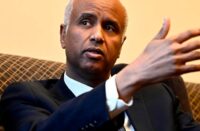The United States government has formally acknowledged Edmundo González, the Venezuelan opposition candidate, as the “president-elect” of Venezuela. This decision was announced on Tuesday, following a contentious election in July, where current President Nicolas Maduro claimed victory.
Antony Blinken, the U.S. Secretary of State, publicly acknowledged González and called for respect for the democratic choice of the Venezuelan electorate. Earlier, the Biden administration had indicated that González had secured the majority of votes in the disputed July 28 election, but had stopped short of officially recognizing him as the newly elected president.
The Venezuelan National Electoral Council, known for its pro-Maduro bias, declared Maduro as the winner shortly after polling ended. Notably, detailed vote counts were not provided in this election, a departure from previous practices.
However, the opposition coalition managed to gather tally sheets from about 80% of the electronic voting machines across the nation and made them publicly available online. According to González and opposition leader Maria Corina Machado, these voting records demonstrated that González, a former diplomat, won the election with twice as many votes as Maduro.
Following Blinken’s statement, González expressed his gratitude, stating that this recognition honors the desire for change among the Venezuelan people and commemorates their collective efforts during the July 28 election.
Despite the political turmoil, González left Venezuela in September and sought refuge in Spain, following a warrant issued for his arrest in relation to the publication of the voting tally sheets.
The Venezuelan government has so far not responded to these developments. Both Maduro and the electoral authorities have consistently dismissed calls from the U.S., the European Union, Colombia, Brazil, and other nations for transparency and for the detailed voting records to be shown.
International observers from the United Nations and the U.S.-based Carter Center have voiced their concerns over the credibility of the election results announced by the Venezuelan electoral authorities. While they did not outrightly validate the opposition’s claims of victory, they did acknowledge that the voting records published online by the opposition appeared to have all original security features intact.
The political landscape in Venezuela is attracting attention globally and could potentially impact investors interested in the South American country. With the U.S. now recognizing González as the president-elect, it remains to be seen how this will influence the country’s political and economic trajectory moving forward.





